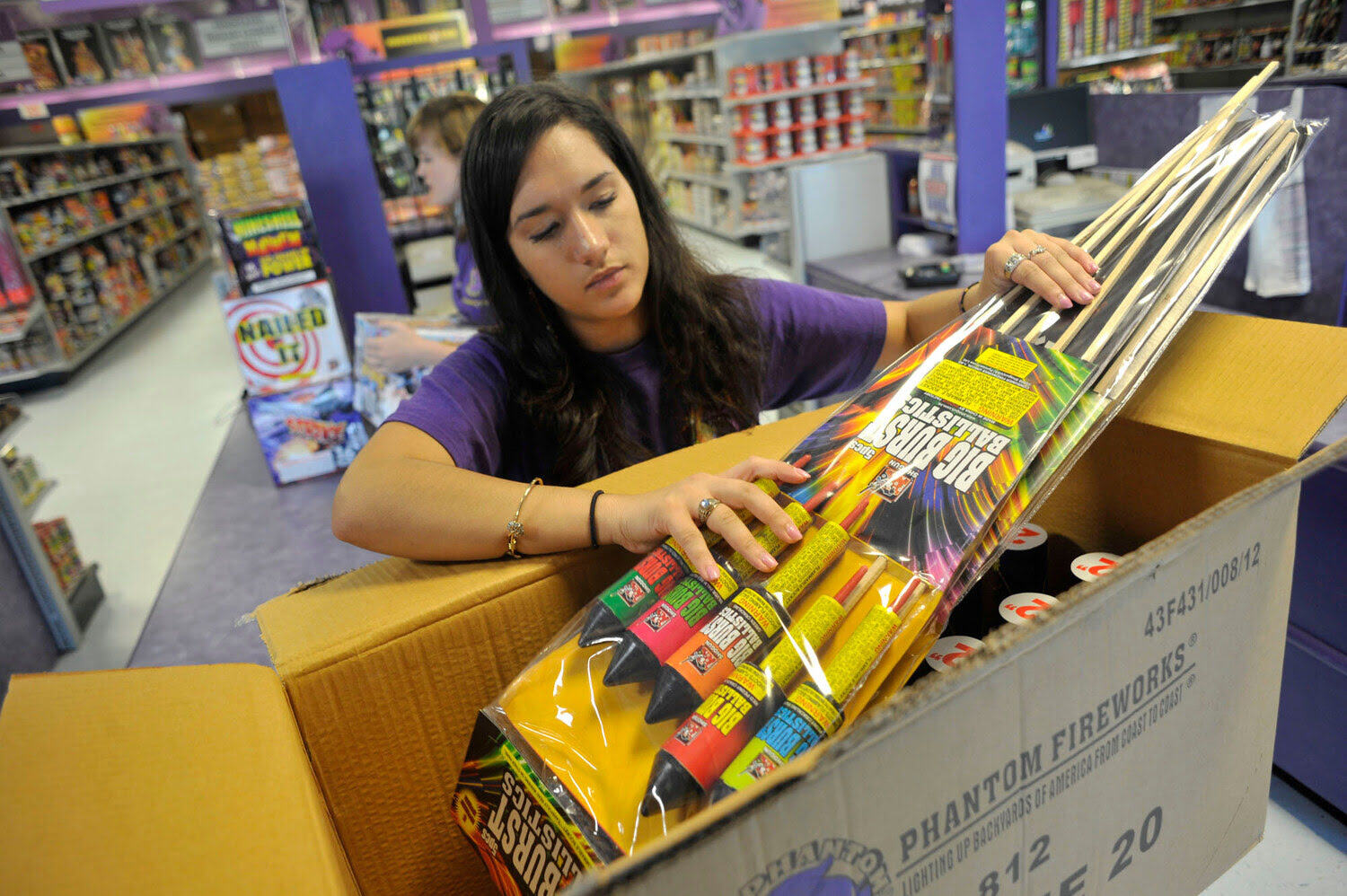

Articles
How To Store Fireworks
Modified: December 7, 2023
Learn how to safely store fireworks with our informative articles. Discover tips and guidelines to ensure proper storage and prevent accidents.
(Many of the links in this article redirect to a specific reviewed product. Your purchase of these products through affiliate links helps to generate commission for Storables.com, at no extra cost. Learn more)
Introduction
Welcome to this comprehensive guide on how to store fireworks. Fireworks are a fun and exciting way to celebrate special occasions, but they must be handled with care both during use and storage. Proper storage of fireworks is essential to ensure the safety of both individuals and property. In this article, we will discuss the necessary safety precautions, choosing an appropriate storage location, selecting suitable storage containers, packing fireworks correctly, and maintaining the firework storage area.
Fireworks are explosive devices that contain various chemicals and materials, which means they can be dangerous if not handled properly. Accidental ignition or exposure to heat sources can lead to serious accidents, injuries, and even property damage. Therefore, it is crucial to understand and follow specific guidelines for the safe storage of fireworks.
By adhering to these guidelines, you not only increase safety but also prolong the shelf life and performance of the fireworks themselves. Whether you are a fireworks enthusiast, a retailer, or an event organizer, this guide will provide you with the knowledge and resources to store fireworks properly.
Please keep in mind that this guide is for informational purposes only. Always consult local laws, regulations, and any specific guidelines provided by fire marshals or authorities in your area. Safety should always be the top priority when dealing with fireworks.
Now, let’s dive into the essential safety precautions you must take when storing fireworks.
Key Takeaways:
- Prioritize safety precautions: Always read and follow the manufacturer’s instructions, store fireworks in a cool, dry place, and keep them away from children to ensure safety and longevity.
- Choose an appropriate storage location: Comply with local regulations, implement fire prevention measures, and ensure accessibility while maintaining security for safe firework storage.
Read more: How To Store Store-Bought Bread
Safety Precautions
Before you start storing fireworks, it is crucial to understand and implement the necessary safety precautions. These precautions will help minimize the risk of accidents, injuries, and potential property damage. Here are some essential safety measures to keep in mind:
- Read and follow the instructions: Always read and follow the manufacturer’s instructions and warnings provided on the fireworks packaging. These instructions will include important information about handling, storage, and usage.
- Keep fireworks away from children: Ensure that fireworks are stored in a secure location inaccessible to children. Children should not have access to fireworks without adult supervision.
- Store fireworks in a cool and dry place: Fireworks can be sensitive to moisture, which can impact their performance and safety. Store them in a cool and dry area to maintain their integrity.
- Avoid storing fireworks near flammable materials: Keep fireworks away from flammable liquids, gases, or other materials that could potentially ignite or react with fireworks.
- Do not expose fireworks to direct sunlight or extreme temperatures: Exposure to direct sunlight or extreme temperatures can affect the stability and composition of fireworks. Store them in a location where they are protected from such conditions.
- Do not smoke or use open flames near fireworks: Smoking or using open flames near fireworks can pose a serious fire hazard. It is crucial to maintain a safe and smoke-free environment when handling and storing fireworks.
- Do not store damaged or expired fireworks: Inspect fireworks before storing them. Discard any damaged or expired fireworks as they may not perform as intended and could pose a safety risk.
- Keep a fire extinguisher nearby: Have a working fire extinguisher readily available in the storage area in case of emergencies. Ensure that you are familiar with its proper usage.
- Secure the storage area: Implement appropriate security measures, such as locks or access restrictions, to prevent unauthorized access to the fireworks storage area.
- Create an emergency plan: Develop and communicate an emergency plan that includes evacuation routes, emergency contacts, and procedures in case of a fire or accident involving fireworks.
By following these safety precautions, you are taking important steps to ensure the well-being of yourself, others, and the surrounding property. Next, let’s discuss the factors to consider when choosing an appropriate storage location for fireworks.
Choosing a Storage Location
When it comes to storing fireworks, selecting the right storage location is crucial for safety and maintaining the integrity of the fireworks. Here are some important factors to consider when choosing a storage location:
- Compliance with local regulations: Before choosing a storage location, familiarize yourself with the local laws and regulations regarding firework storage. There may be specific requirements regarding storage distances, fire suppression systems, and zoning restrictions.
- Distance from inhabited areas: It is important to choose a storage location that is a safe distance away from inhabited areas, such as residential neighborhoods, schools, and hospitals. This helps minimize the risk to people and property in the event of an accident.
- Fire prevention measures: Look for a storage location that has adequate fire prevention measures in place, such as fire-resistant construction materials, sprinkler systems, and fire alarms. These measures can help contain and suppress any fire quickly.
- Avoid storing near ignition sources: Select a storage location that is far away from potential sources of ignition, such as open flames, heat sources, electrical panels, or machinery that generates sparks. This reduces the risk of accidental ignition.
- Accessibility: The storage location should be easily accessible for authorized personnel who need to handle or inspect the fireworks. Ensure that there is sufficient space and convenient entry points for easy movement of the fireworks.
- Separation from hazardous materials: Avoid storing fireworks near hazardous materials such as fuels, chemicals, or other explosive substances. Keep them in a separate area to prevent any potential reactions or accidents.
- Climate control: Consider the climate of your storage location. Extreme temperature fluctuations or excessive humidity can affect the quality and performance of the fireworks. Aim for a storage area that maintains a consistent environment to preserve the integrity of the fireworks.
- Security: Ensure that the storage location has appropriate security measures in place. This may include secure fencing, surveillance cameras, and restricted access to prevent unauthorized entry and potential theft.
- Emergency preparedness: Choose a storage location that enables easy access for emergency services in case of an incident. Provide clear signage and markings to help responders locate the storage area quickly.
By considering these factors, you can select a storage location that meets the necessary safety requirements and regulatory guidelines. The next step is to choose suitable storage containers for your fireworks, which we will discuss in the following section.
Storage Containers
Proper storage containers play a vital role in maintaining the safety and integrity of fireworks. Choosing the right containers ensures that the fireworks are protected from accidental ignition, moisture, and damage. Here are some key considerations when selecting storage containers for fireworks:
- Fire-resistant materials: Opt for storage containers made of fire-resistant materials, such as metal, that can withstand high temperatures and reduce the risk of fire spreading.
- Tight-fitting lids: Ensure that the storage containers have lids that fit tightly to prevent any external elements, such as water or debris, from entering and damaging the fireworks.
- Separate compartments: If storing different types of fireworks, consider containers with separate compartments or dividers. This helps prevent accidental mixing, which can lead to unexpected reactions.
- Labeling: Clearly label each storage container with the type of fireworks it contains. This assists in easy identification and helps prevent mixing incompatible fireworks.
- Capacity: Choose storage containers that can accommodate the quantity of fireworks you plan to store. Avoid overcrowding the containers, as it increases the risk of accidents and damage.
- Stackability: If space is limited, look for containers that are stackable. This allows for efficient use of the storage area while ensuring stability and accessibility.
- Security features: Consider storage containers with additional security features, such as locking mechanisms, to prevent unauthorized access and reduce the risk of theft or tampering.
- Easy transportation: If you need to transport fireworks, choose containers that are designed for easy and secure transportation. Look for features like handles, wheels, and straps.
- Construction quality: Inspect the construction and overall quality of the storage containers. Ensure they are sturdy and free from defects that could compromise their effectiveness.
- Accessibility: Make sure the storage containers allow for easy access to the fireworks for inspections and retrieval, while still maintaining the necessary level of security.
Remember to regularly inspect the storage containers for any signs of wear, damage, or corrosion. Replace any containers that no longer meet the required safety standards. Properly maintaining the storage containers is essential for the long-term storage of fireworks.
Now that you have selected suitable storage containers for your fireworks, it’s time to learn how to pack them correctly. This will help ensure their stability and minimize the risk of accidental ignition or damage during storage, which we’ll discuss in the next section.
Packing Fireworks Properly
Packing fireworks correctly is crucial for maintaining their stability and minimizing the risk of accidents during storage. Improper packing can lead to friction, accidental ignition, or damage, which can have serious consequences. Follow these guidelines to pack fireworks properly:
- Separate fireworks by type: Group fireworks by type and pack them separately to avoid accidental mixing. Keep different types of fireworks in their designated compartments or containers to prevent reactions and ensure easy identification.
- Use appropriate padding: Place suitable padding material, such as foam or packing peanuts, in the storage containers to cushion and protect the fireworks. This helps prevent movement and reduces the risk of damage.
- Secure loose ends: When packing fireworks with fuses or wires, ensure that any exposed ends are securely wrapped or taped. This minimizes the risk of accidental ignition and potential damage to the fireworks.
- Avoid overcrowding: Do not overfill the storage containers to the point where the fireworks are cramped. Overcrowding increases the risk of accidental friction or damage from movement. Leave enough space for easy retrieval and inspection.
- Organize by expiration date: Arrange the fireworks in a way that allows for easy identification of their expiration dates. This ensures that older fireworks are used or disposed of first to maintain safety and performance.
- Keep labels visible: Ensure that the labels on the fireworks are easily visible when packed. This makes it easier to identify the contents of the storage containers and avoid confusion or mixing of incompatible fireworks.
- Handle with care: When packing fireworks, always handle them gently to avoid accidental ignition or damage. Follow the manufacturer’s guidelines for safe handling and avoid rough movements or impacts.
- Seal containers securely: Close and seal the storage containers tightly to prevent any external elements from entering and adversely affecting the fireworks. This includes moisture, dirt, or any potential sources of ignition.
- Clearly mark storage containers: Label the storage containers with clear and legible information, including the type of fireworks, expiration date, and any specific handling instructions. This helps maintain organization and safety.
- Regularly inspect and rearrange: Periodically inspect the packed fireworks to ensure their condition and stability. If needed, rearrange or repack them to maintain safety and prevent any potential issues.
By following these packing guidelines, you can ensure that your fireworks are stored in a secure and organized manner. Next, let’s discuss how you can store fireworks during different seasons to maintain their quality.
Store fireworks in a cool, dry place away from heat sources and direct sunlight. Keep them in their original packaging or a tightly sealed container to prevent moisture damage. Always follow local laws and regulations for fireworks storage.
Read more: How To Store Basil From Grocery Store
Storing Fireworks in Different Seasons
Properly storing fireworks during different seasons is important to maintain their quality and performance. Different weather conditions can impact the stability and effectiveness of fireworks, so it’s essential to take appropriate measures. Here are some tips for storing fireworks in different seasons:
Summer:
During the summer months, temperatures can rise significantly. It’s crucial to store fireworks in a cool and dry place to prevent heat-related issues, such as degradation or accidental ignition. Consider the following:
- Choose a storage location that is well-ventilated and protected from direct sunlight.
- Ensure that the storage area is insulated and maintains a consistent temperature to avoid overheating.
- Regularly monitor the temperature inside the storage containers and adjust if necessary.
Winter:
In colder climates, extreme temperatures and moisture can pose challenges for storing fireworks. Follow these guidelines to protect them during the winter season:
- Avoid exposing the fireworks to freezing temperatures, as it can affect their chemical composition and performance.
- Store the fireworks in a climate-controlled environment to prevent excessive moisture and condensation.
- Ensure that the storage area is insulated properly to maintain a stable and moderate temperature.
Rainy or Humid Seasons:
During rainy or humid seasons, moisture can be a significant concern for storing fireworks. Moisture can affect the performance and safety of fireworks. Consider the following precautions:
- Choose a storage location that is dry and well-ventilated.
- Ensure that the storage containers have tightly sealed lids to prevent any moisture infiltration.
- Consider using moisture-absorbing packets or desiccants in the storage containers to help reduce humidity.
- Regularly inspect and replace any damaged or deteriorated packaging that could allow moisture to enter.
Transitional Seasons:
During the transitional seasons of spring and fall, it’s important to be aware of fluctuating temperatures and varying weather conditions. Follow general storage guidelines while keeping an eye on any changes in temperature or humidity.
Remember to regularly check the storage conditions and the integrity of the packaging to ensure that the fireworks remain safe and viable. Proper storage during different seasons helps to extend the shelf life and maintain the quality of the fireworks.
Now that you know the essentials of storing fireworks in different seasons, let’s move on to maintaining the firework storage area in the next section.
Maintaining Firework Storage Area
Maintaining the firework storage area is crucial for ensuring the long-term safety and integrity of the stored fireworks. Regular upkeep and preventive measures will help minimize potential risks and hazards. Here are some essential steps to maintain the firework storage area:
- Cleanliness: Keep the storage area clean and free from any debris, flammable materials, or clutter that could increase the risk of fire or accidents. Regularly sweep and remove any potential hazards.
- Proper ventilation: Ensure that the storage area has adequate ventilation to prevent the accumulation of gases or fumes. Good ventilation helps maintain a stable environment and dissipate any potential hazards.
- Regular inspections: Conduct frequent inspections of the storage area to identify any signs of damage, leaks, or corrosion. Address any issues promptly to prevent further deterioration and maintain a safe environment.
- Security measures: Continuously monitor and update the security measures in place to prevent unauthorized access. This may include CCTV cameras, alarms, locks, and restricted entry to ensure the safety of the stored fireworks.
- Fire prevention: Install and periodically test fire detection systems, such as smoke detectors, sprinklers, or fire extinguishers, as per local regulations. Regularly inspect and maintain these systems to ensure their functionality.
- Regular training and drills: Provide training to personnel involved in handling or accessing the firework storage area. Conduct periodic drills to reinforce safety protocols and emergency response procedures.
- Appropriate signage: Clearly label the storage area with signage indicating the potential hazards, authorized personnel only access, emergency contact information, and any specific safety instructions or warnings.
- Controlled access: Restrict access to the storage area to authorized personnel only. Keep a log of individuals entering and leaving the area, maintaining a record of accountability.
- Documentation and record-keeping: Maintain accurate documentation of the stored fireworks, including inventory lists, expiration dates, and any inspections or maintenance activities conducted.
- Emergency response plan: Have a well-defined emergency response plan in place that covers various scenarios, such as fires, accidents, or unauthorized access. Ensure all personnel are aware of the plan and regularly conduct drills to test its effectiveness.
Remember to consult local regulations and guidelines regarding the maintenance and safety of firework storage areas. Adhering to these maintenance practices will help ensure the safe storage of fireworks and minimize the risk of accidents or incidents.
Now that you understand how to maintain the firework storage area, let’s move on to the importance of periodic inspection and testing of the stored fireworks.
Periodical Inspection and Testing
Periodical inspection and testing of stored fireworks are essential to ensure their safety, performance, and compliance with regulations. Regular assessments help identify any potential issues or deterioration and allow for timely corrective measures. Here’s why periodic inspection and testing are crucial:
- Safety assurance: Regular inspections help ensure that the stored fireworks are in good condition and do not pose any safety risks. It allows for the identification of potential hazards, damage, or expired fireworks that may compromise safety.
- Performance evaluation: Testing the stored fireworks helps assess their performance, including factors such as ignition, trajectory, and visual effects. This evaluation ensures that the fireworks will function as intended during displays or celebrations.
- Compliance with regulations: Periodic inspections and testing help ensure compliance with local laws and regulations governing firework storage. It helps verify that the fireworks are stored correctly, meet safety standards, and adhere to any specific requirements.
- Expiration date management: Regular inspections enable the identification of expired fireworks. Removing expired items prevents their accidental use and ensures that only viable fireworks are in storage, maintaining safety and performance.
- Detecting damage or deterioration: Inspections help detect any signs of damage, deterioration, or compromised packaging that may affect the stability or performance of the fireworks. Early detection allows for prompt repair or replacement, ensuring stored fireworks remain intact and safe.
- Quality control: Periodic testing helps maintain the quality and consistency of the stored fireworks. This validation ensures that the fireworks still meet the desired quality standards and perform as expected during displays or events.
- Record keeping and documentation: Documenting inspection and testing activities helps maintain a detailed record of the condition and performance of the stored fireworks. This record assists with traceability, inventory management, and compliance with regulations.
- Continuous improvement: Regular assessments provide valuable insights and feedback on the durability, packaging, and performance of fireworks. This feedback can be used to improve future storage practices and enhance safety measures.
- Peace of mind: Periodic inspections and testing provide reassurance that the stored fireworks are in good condition, meet safety standards, and are ready for use when needed. This peace of mind is vital for event organizers, retailers, or enthusiasts who rely on these fireworks.
It is recommended to establish a schedule for regular inspections and testing based on factors such as the shelf life of the fireworks, storage conditions, and local regulations. Engaging qualified professionals or obtaining specific equipment for testing adds an extra layer of assurance to the process.
By conducting periodical inspections and testing, you can ensure the safety, compliance, and quality of the stored fireworks. Finally, let’s explore the proper methods of disposing of expired or unusable fireworks.
Disposing of Expired Fireworks
Proper disposal of expired or unusable fireworks is crucial to ensure safety and prevent accidents. When fireworks reach their expiration date or become damaged or deteriorated, they should no longer be used or stored. Here’s how to dispose of expired fireworks safely:
- Check local regulations: Before disposing of fireworks, familiarize yourself with local regulations regarding the proper disposal methods. Different municipalities may have specific guidelines that you need to follow.
- Consult experts: If you are unsure about the disposal process, it is advisable to consult with local authorities, fire departments, or the Explosive Ordnance Disposal (EOD) unit to seek guidance and assistance.
- Do not dismantle or alter: Never attempt to dismantle or alter the fireworks in any way. This can be highly dangerous and increase the risk of accidental ignition. Handle expired fireworks with caution and care.
- Submerge in water: To render the fireworks inactive, submerge them fully in a bucket of water for an extended period. This will soak the fuses and prevent accidental ignition.
- Allow thorough soaking: Ensure that the fireworks are fully saturated and soaked for an adequate amount of time to ensure their complete deactivation.
- Consider professional disposal: If you have a large quantity of expired fireworks or are unsure about handling the disposal yourself, consider hiring professionals who are experienced in the safe disposal of fireworks.
- Do not burn or bury: Never attempt to burn or bury fireworks, as this can lead to unintended dangers and environmental hazards.
- Inform local authorities: In some cases, local authorities need to be notified of the disposal process. They can provide you with further guidance or arrange for the pickup and disposal of the expired fireworks.
- Proper packaging: When transporting the expired fireworks for disposal, ensure they are packed securely to prevent any accidental ignition or damage during transport.
- Document disposal: Keep a record of the disposal process, including dates, methods used, and any relevant communication with local authorities. Proper documentation helps maintain accountability and compliance.
Remember, the safe disposal of fireworks is essential to protect both individuals and the environment. Adhering to proper disposal practices ensures that expired fireworks are handled responsibly and minimize any potential risks or hazards.
After disposing of the expired fireworks, it is important to reassess your storage practices and inventory management to avoid the accumulation of expired or unusable fireworks in the future.
Now that we’ve covered the proper disposal of expired fireworks, let’s conclude this comprehensive guide on how to store fireworks.
Read more: How To Store Arrows
Conclusion
Storing fireworks properly is crucial for safety, longevity, and the overall enjoyment of these festive explosives. By following the guidelines outlined in this comprehensive guide, you can ensure that the fireworks are stored in a secure and organized manner, minimizing the risk of accidents or damage. Here are the key takeaways:
1. Prioritize safety precautions: Always read and follow the manufacturer’s instructions, keep fireworks away from children, store them in a cool and dry place, and avoid exposure to heat sources or open flames.
2. Choose an appropriate storage location: Ensure compliance with local regulations, consider distance from inhabited areas, implement fire prevention measures, and ensure the storage area is accessible yet secure.
3. Select suitable storage containers: Opt for fire-resistant materials, secure lids, separate compartments, and clearly label each container to prevent mixing and promote easy identification.
4. Pack fireworks properly: Group fireworks by type, use appropriate padding, secure loose ends, avoid overcrowding, and organize them by expiration date for efficient storage and maintenance.
5. Store fireworks in different seasons: Keep them cool and dry during the summer, protect them from freezing temperatures and moisture in the winter, and minimize exposure to humidity during rainy or humid seasons.
6. Maintain the firework storage area: Keep it clean and well-ventilated, regularly inspect for damage or corrosion, enhance security measures, and maintain appropriate fire prevention systems.
7. Conduct periodic inspection and testing: Ensure safety, evaluate performance, comply with regulations, manage expiration dates, and maintain quality control for the stored fireworks.
8. Safely dispose of expired fireworks: Check local regulations, consult experts if needed, submerge fireworks in water to render them inactive, consider professional disposal for large quantities, and document the disposal process.
By following these guidelines and taking the necessary precautions, you can ensure the safe storage of fireworks and enhance the overall experience of using them for celebrations or events. Remember, safety should always be the top priority when dealing with fireworks.
Now that you have gained a comprehensive understanding of how to store fireworks, go ahead and put this knowledge into practice to ensure the safe and enjoyable use of fireworks for yourself and others.
Frequently Asked Questions about How To Store Fireworks
Was this page helpful?
At Storables.com, we guarantee accurate and reliable information. Our content, validated by Expert Board Contributors, is crafted following stringent Editorial Policies. We're committed to providing you with well-researched, expert-backed insights for all your informational needs.
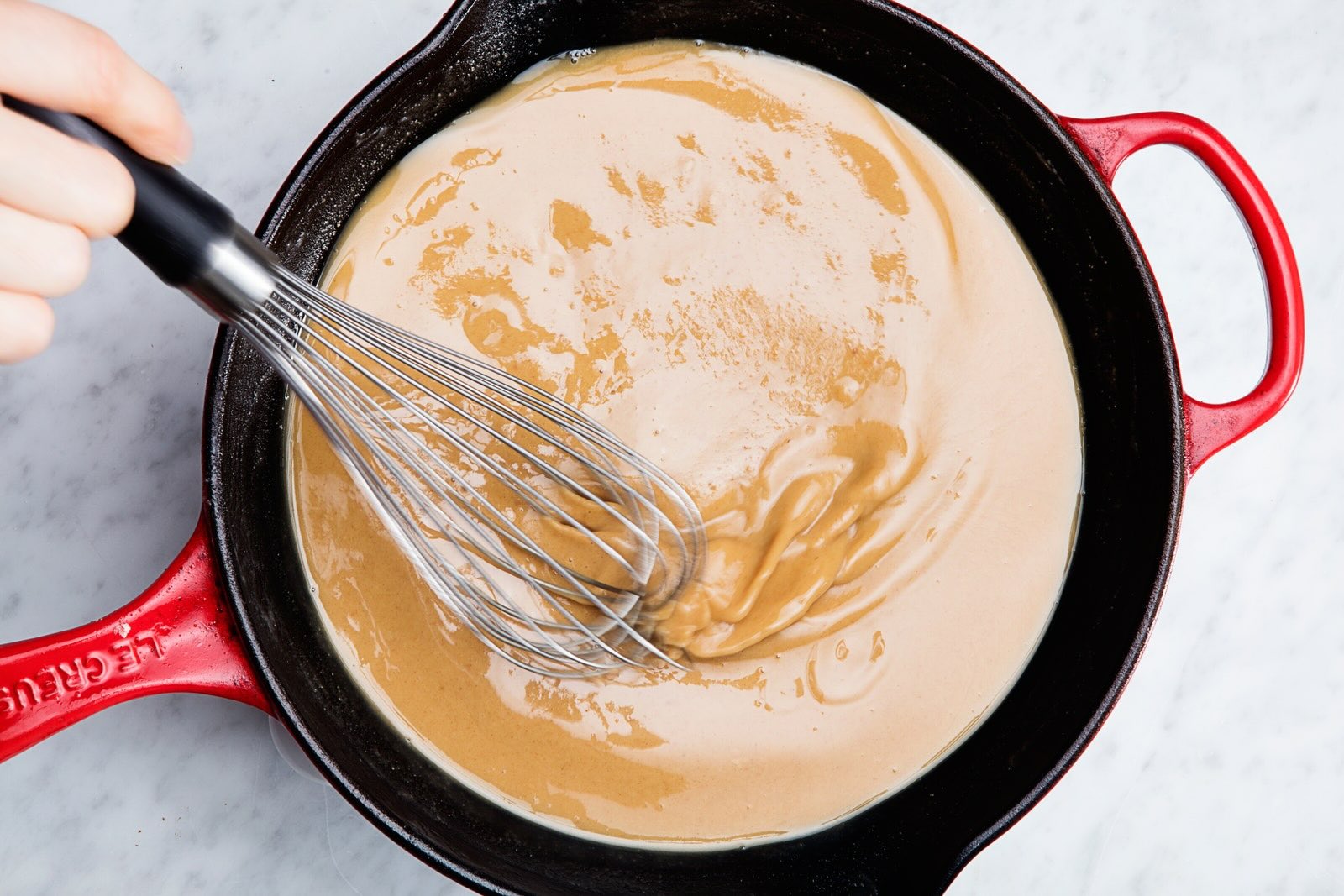
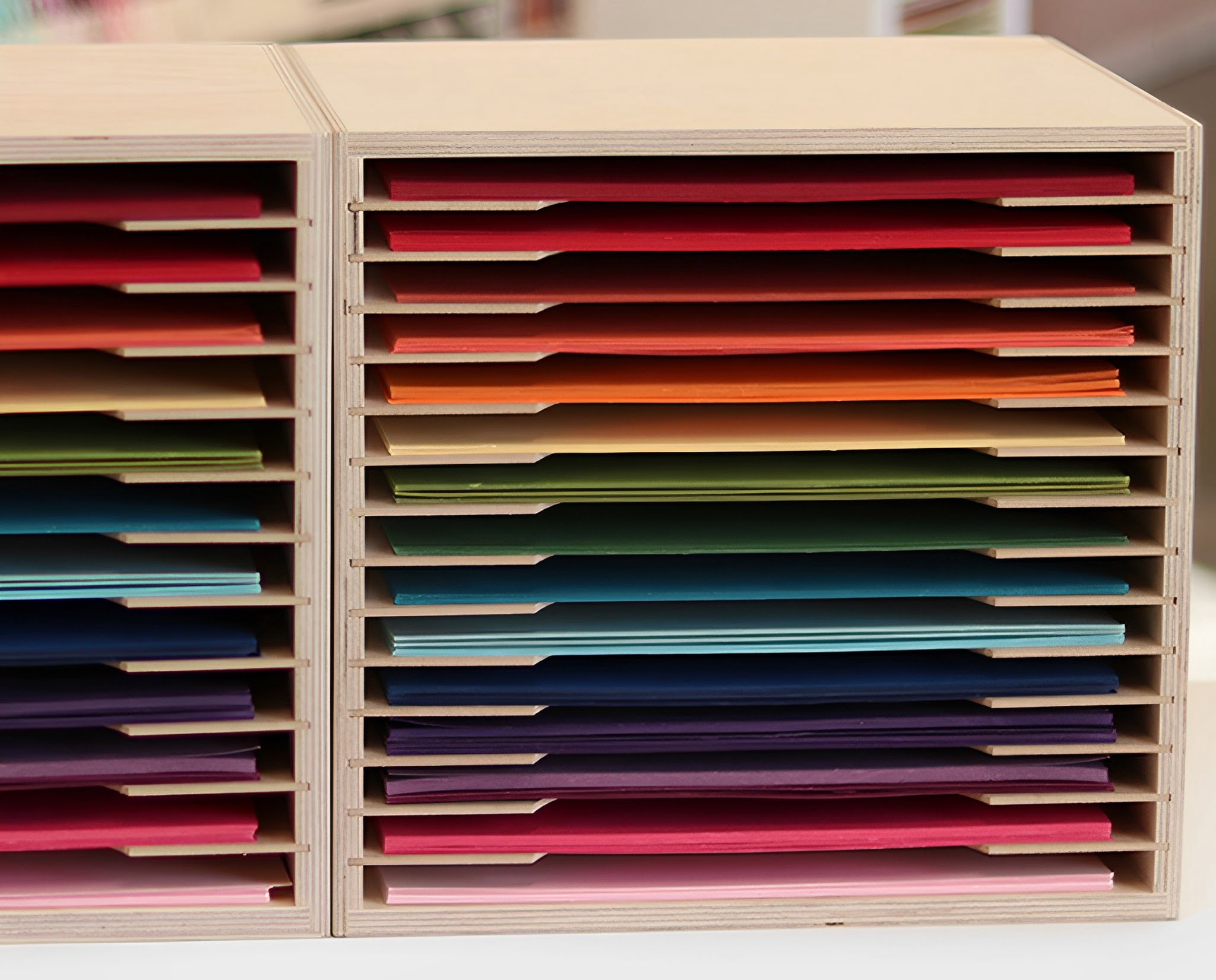
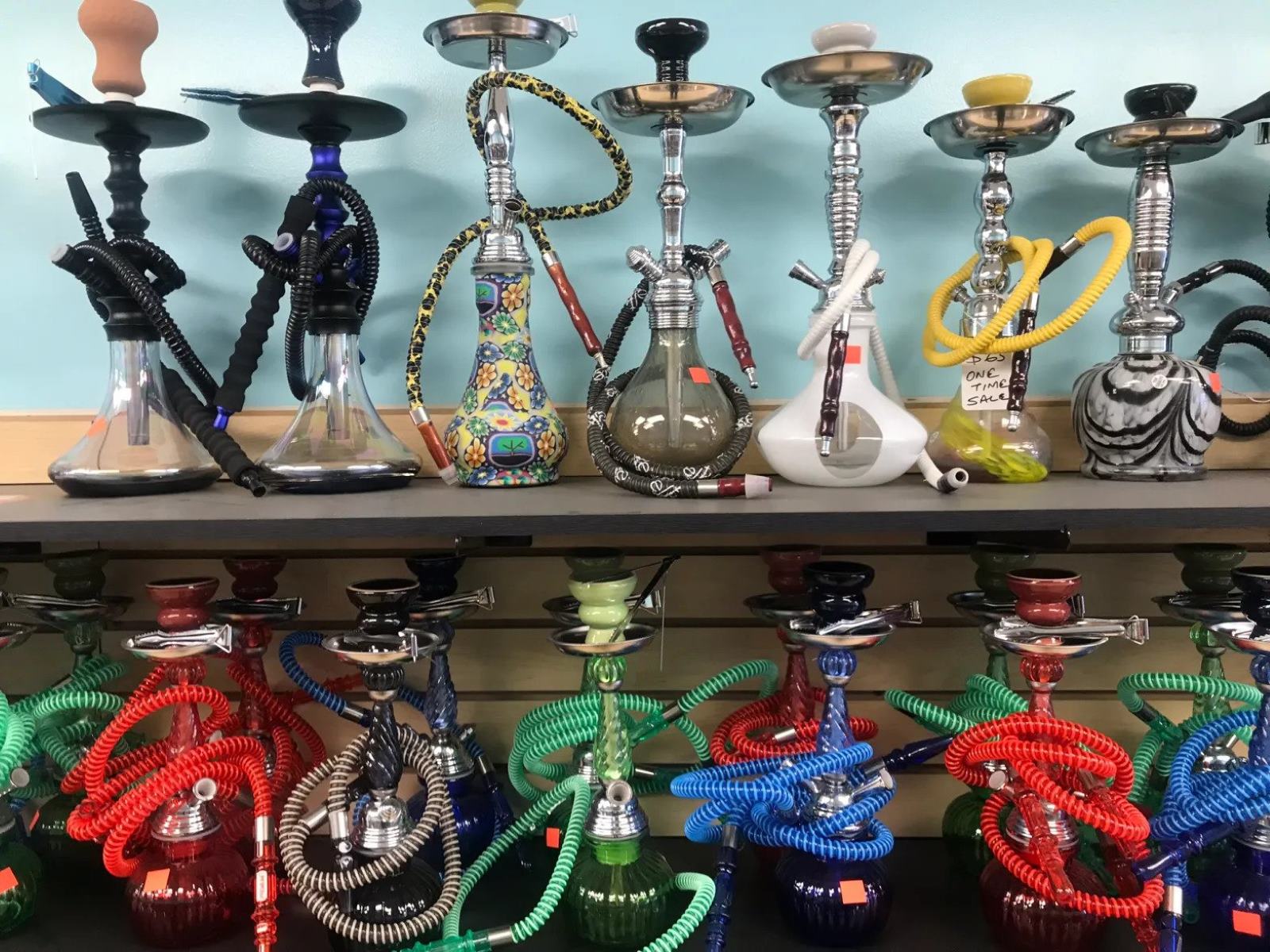




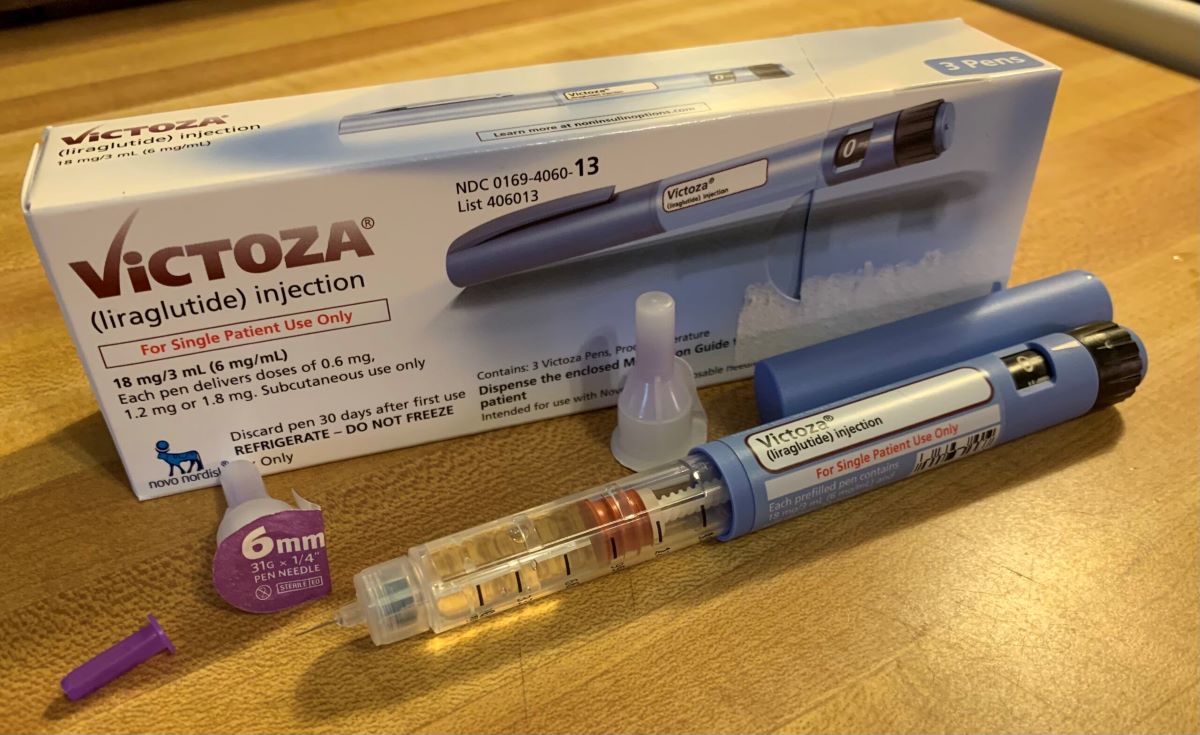
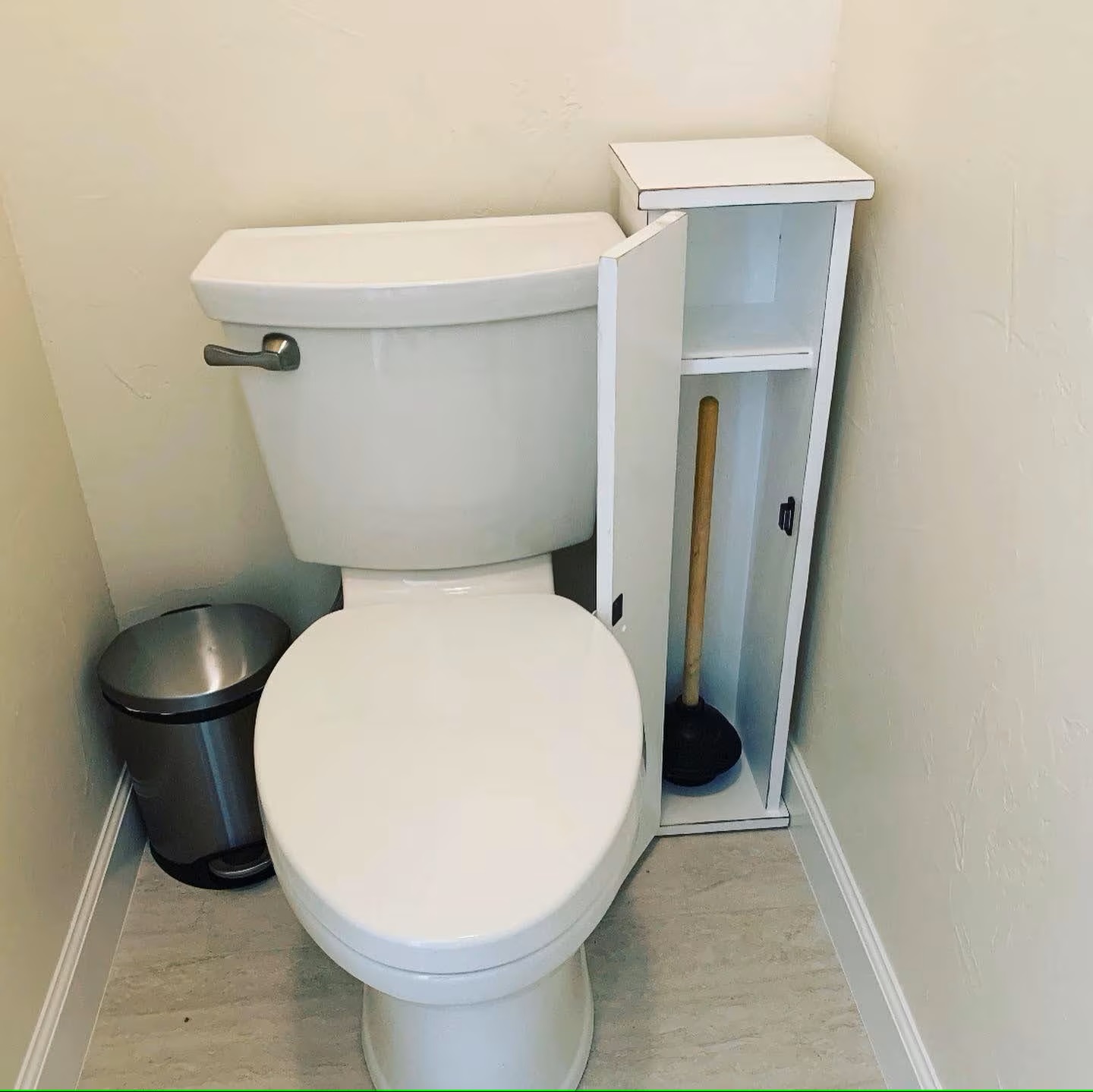
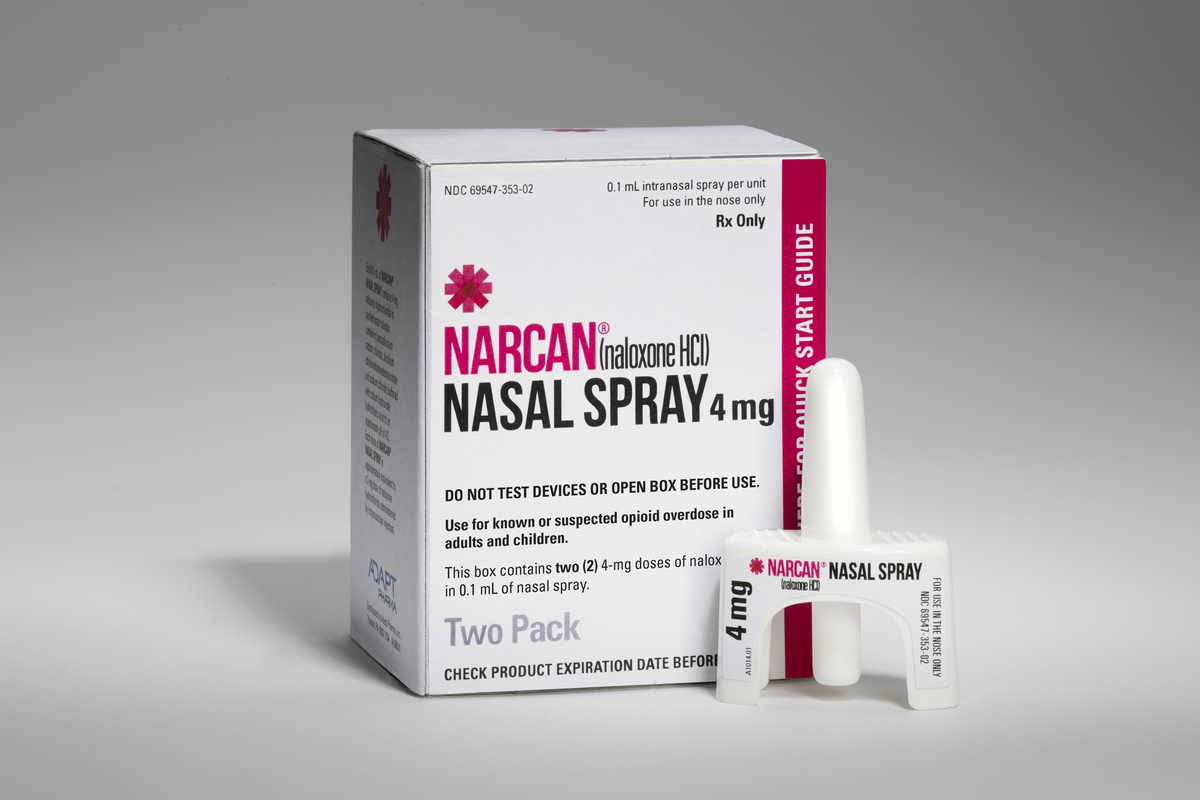

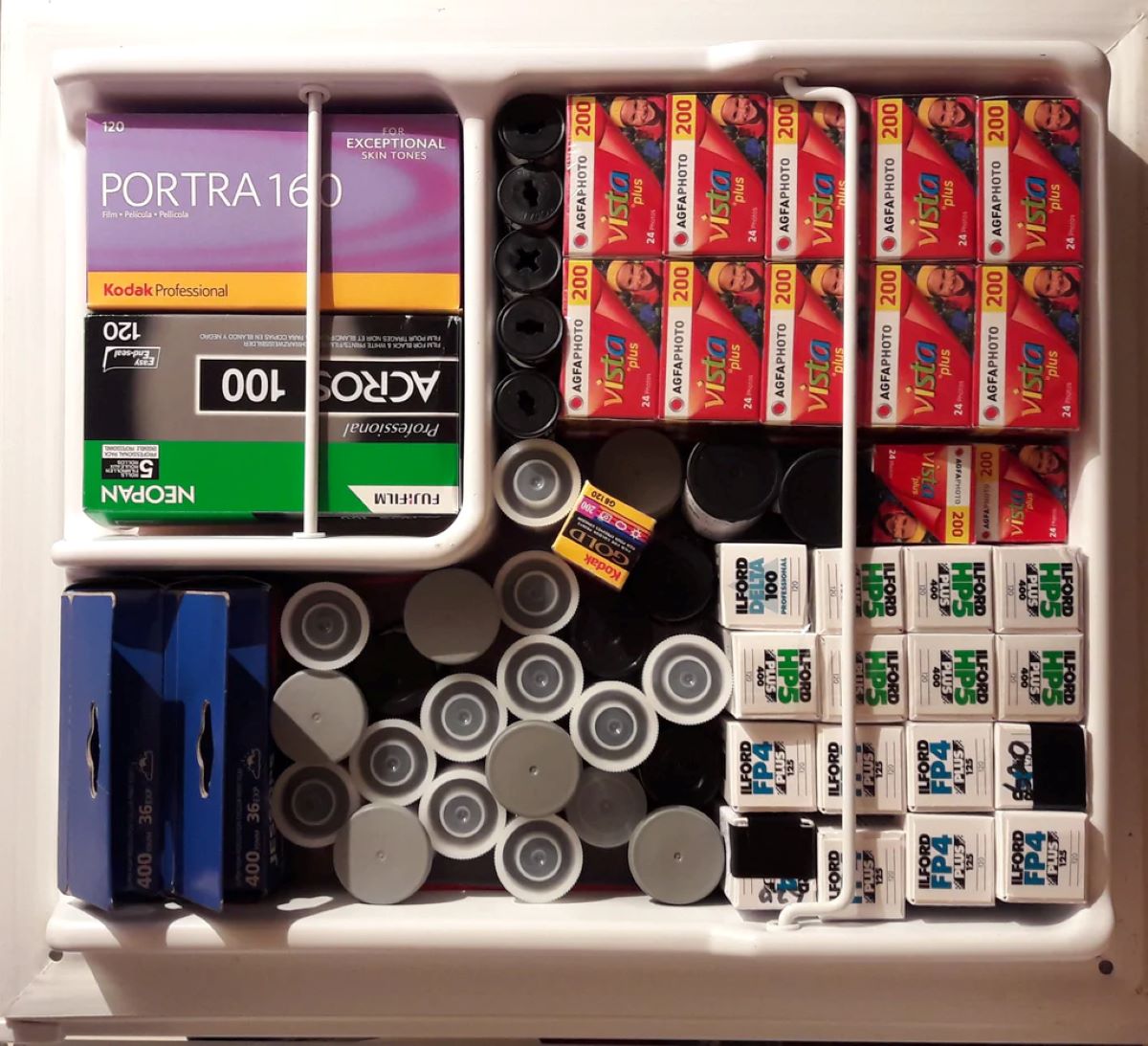
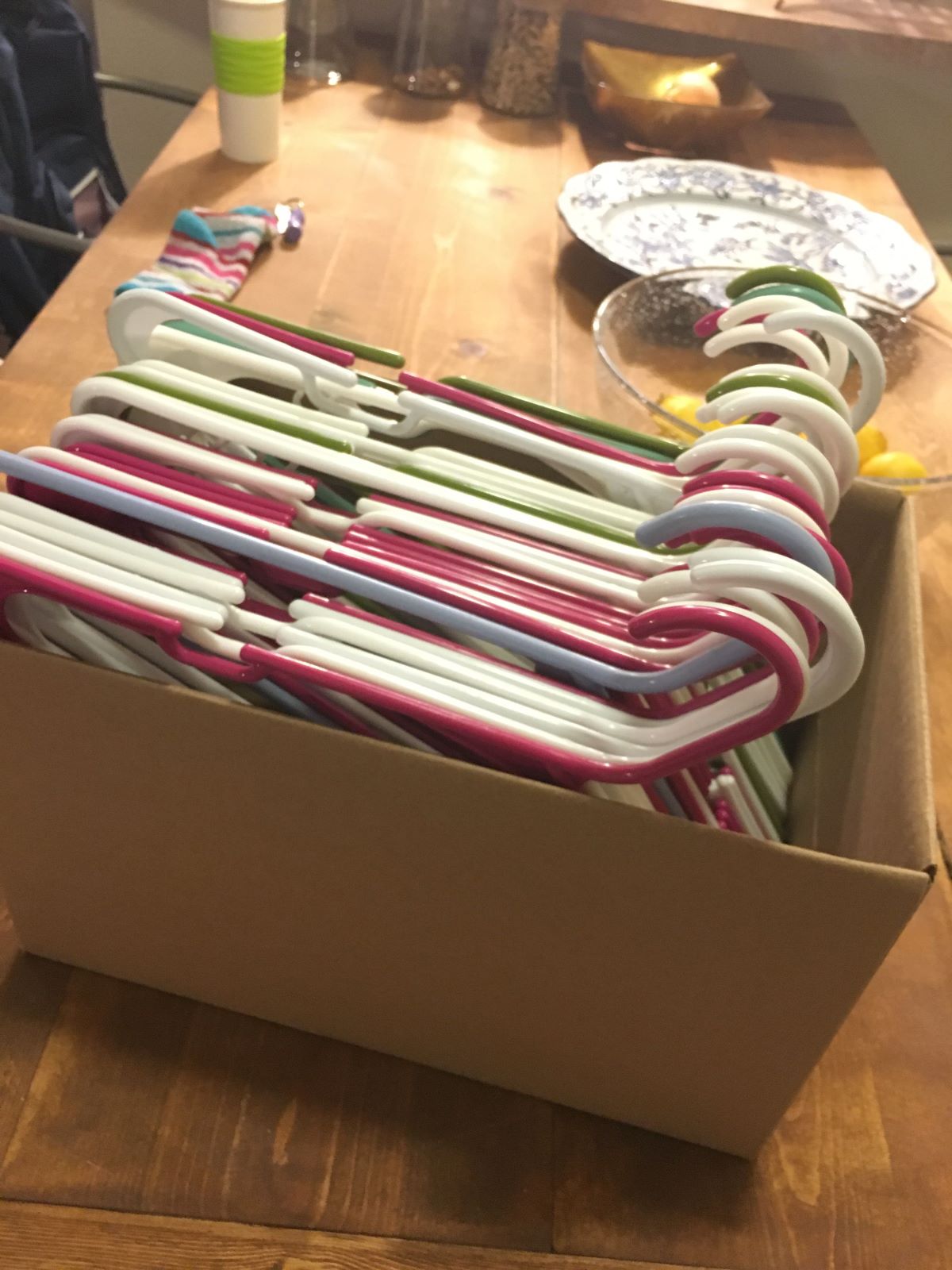

0 thoughts on “How To Store Fireworks”